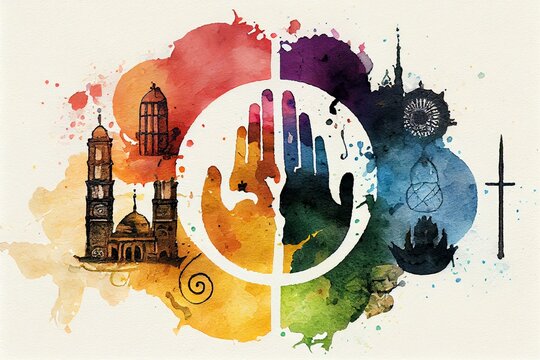The Price for Democracy
By Dr. Aslam Abdullah, Editor-in-chief of The Muslim Observer
Bill Clinton did it, the most powerful Christian evangelical leader, Jimmy Swaggart did it, Former house speaker Newt Gingrich did it and the best known modern civil rights leader Jesse Jackson did it, and now the governor of one of the most powerful states did it. Cheating on their wives is the easiest things that these democratically elected leaders do, and once caught they all come to the stage holding the hands of their spouses crying, sobbing and apologizing to their families and the public for their immoral behavior.
Well, modern representative Democracy does not guarantee that the public would get an elected official who would not misuse the trust of the people as well as their resources for their personal pleasures beyond the religiously and legally accepted norms.
Some people call it a private matter, as was said by New York governor Spitzer. But how can the public trust a leader who daringly cheats on his family, fully realizing that one day he or she may be caught red-handed by either the media or the authorities?
What is the guarantee that their cheating is confined only to matters pertaining to their families, without any spill over in public matters?
Our democracy is plagued by corruption, from top to bottom. No matter what our public officials say about serving people and their interests, the fact of the matter is that with the exception of a very few, a great majority of them serve big businesses, special interest groups, foreign pressure groups, and big lobbyists. Of course, they do it for a price, a price that is paid in various forms. They all guard each other’s secrets, and only when they realize that the deviant behavior of a member of their league has crossed certain limits, they distance themselves from that individual.
If you happen to visit the Hill in Washington and roam around the corridors of Congress, listening to the chats of staffers, especially the junior ones, you would not be surprised to hear a lot of gossips about who is sleeping with whom and which congressman is being courted by what lobbyists, and so on so forth.
That explains the reason that most congressmen often do not even read the bills which come before them for votes. The Patriot Act is a clear example. This Act, described as the most sensitive one in our fight against terrorism, was passed without being read by a great majority of our congressmen.
Is this not a breach of contract with the people who elect them? Is this not a misuse of the powers and privileges they enjoy? Is this not a betrayal of democracy?
The loyalty of people to democracy is often sold cheaply by our public officials. The elected representatives know fully well that through money and through the resources of the powerful they can easily manipulate the results as most people in elections do not care to vote. Ask an average voter in any congressional district to name his or her representative, you should not be surprised to find that most would draw a blank. The political machines run by political parties know that average people don’t care about elections and their victory or defeat depends on a few party loyalists.
Party loyals vote because their interests depend on the success of their representatives. If they win, the loyals get access to benefits that an average voter would have no access to. The appointments at various levels, the awards offered to citizens, the federal or state resources allocated to various groups, depend on who is in control of power.
Average citizens remain outside the pale of this game, played on the pattern of musical chairs.
Consequently, we are living in a virtual democracy, and not democracy. People’s interests are the least and the last catered to by their representatives, even though Abraham Lincoln once believed in government run by the people for the people and of the people.
Perhaps we should replace this maxim with a new one, in a democracy the people elect the officials, to serve lobbyists, for special interests groups, with the resources of people.
The New York governor’s confessions do not solve the bigger crisis this democracy has created for itself.
This crisis emanates from its inability to give people direct access to the power as it makes them dependent on their representatives to execute their will.
In a situation where Washington seems to have more lobbyists than congressmen and staff, it is unwise to think that people would ever have access to power in determining their own future or deciding the best use of their resources.
There will always be leaders who would betray people’s trust and who would get away with that easily. This is a price that we should be prepared to pay for our virtual democracy.
10-13













2008
843 views
views
0
comments